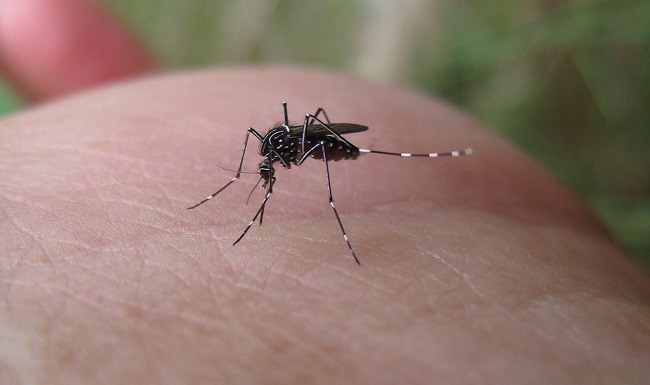
AsianScientist (Apr. 7, 2014) – On World Health Day this year, which falls on April 7, WHO is highlighting the serious and increasing threat of vector-borne diseases, with the slogan “Small bite, big threat.”
More than half the world’s population is at risk from diseases such as malaria, dengue, leishmaniasis, Lyme disease, schistosomiasis and yellow fever, carried by mosquitoes, flies, ticks, water snails and other vectors. Every year, more than one billion people are infected and more than one million die from vector-borne diseases.
WHO also emphasizes that these diseases are entirely preventable. A newly published report, called A global brief on vector-borne diseases, outlines steps that governments, community groups and families can all take to protect people from infection.
“A global health agenda that gives higher priority to vector control could save many lives and avert much suffering. Simple, cost-effective interventions like insecticide-treated bed nets and indoor spraying have already saved millions of lives,” says Dr. Margaret Chan, WHO Director-General. “No one in the 21st century should die from the bite of a mosquito, a sandfly, a blackfly or a tick.”
Vector-borne diseases affect the poorest populations, particularly where there is a lack of access to adequate housing, safe drinking water and sanitation. Malnourished people and those with weakened immunity are especially susceptible.
Within the past two decades, many important vector-borne diseases have also re-emerged or spread to new parts of the world. Environmental changes, a massive increase in international travel and trade, changes in agricultural practices and rapid unplanned urbanization are causing an increase in the number and spread of many vectors worldwide and making new groups of people, notably tourists and business travelers, vulnerable.
Mosquito-borne dengue, for example, is now found in 100 countries, putting more than 2.5 billion people – over 40 percent of the world’s population – at risk. Dengue has recently been reported in China, Portugal and the state of Florida, in the United States of America.
“Vector control remains the most important tool in preventing outbreaks of vector-borne diseases,” says Dr. Lorenzo Savioli, Director of WHO’s Department of Control of Neglected Tropical Diseases. “Increased funds and political commitment are needed to sustain existing vector-control tools, as well as medicines and diagnostic tools – and to conduct urgently needed research.”
On World Health Day 2014, WHO is calling for a renewed focus on vector control and better provision of safe water, sanitation and hygiene – key strategies outlined in WHO’s 2011 Roadmap for the control, elimination and eradication of neglected tropical diseases, which sets targets for the period 2012–2020.
——-
Source: World Health Organization; Photo: Naturegirl 78/Flickr/CC.
Disclaimer: This article does not necessarily reflect the views of AsianScientist or its staff.












